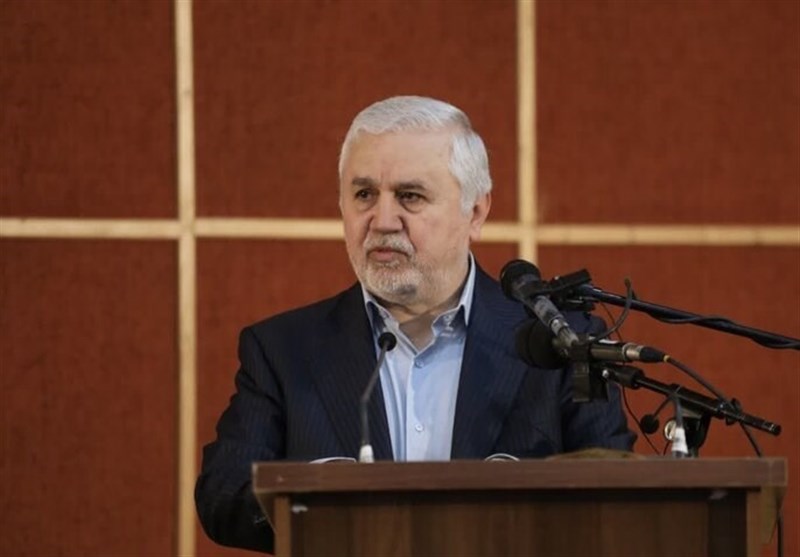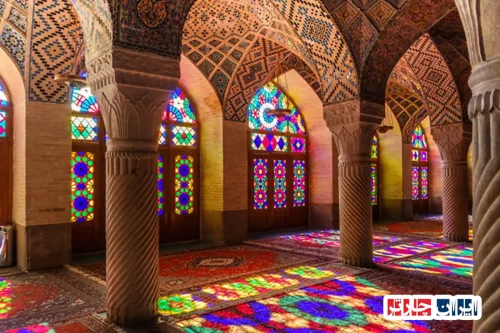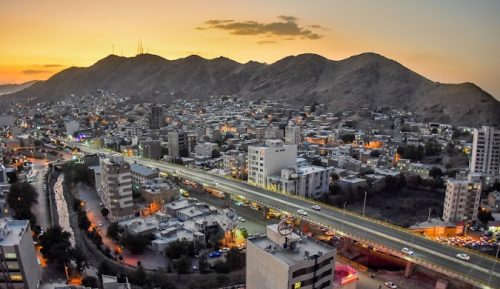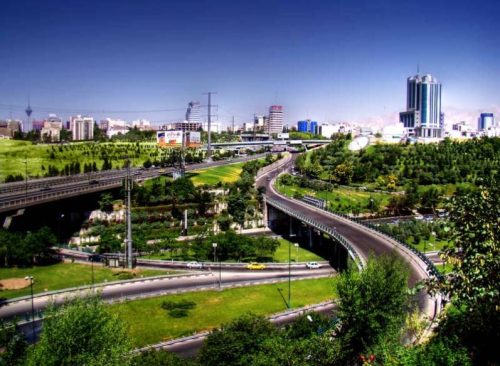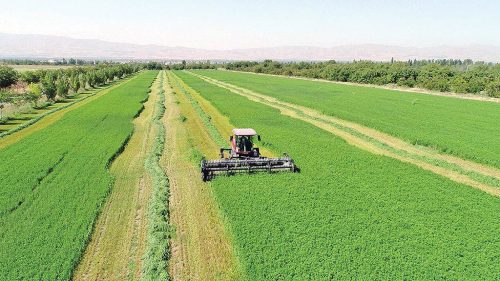News Source : https://www.irna.ir/news/85643434/%D8%A7%D8%AA%D9%85%D8%A7%D9%85-%D9%81%D8%A7%D8%B2-%D9%86%D8%AE%D8%B3%D8%AA-%D9%BE%D8%B1%D9%88%DA%98%D9%87-%D8%AA%D8%A7%D8%B1%DB%8C%D8%AE-%D8%B4%D9%81%D8%A7%D9%87%DB%8C-%D9%85%DB%8C%D8%B1%D8%A7%D8%AB-%D9%81%D8%B1%D9%87%D9%86%DA%AF%DB%8C
Completion of the First Phase of the Cultural Heritage Oral History Project
The completion of the first phase of the Cultural Heritage Oral History Project marks a significant step in preserving and enhancing the country’s cultural heritage. This project, which began in the spring of 1401, has been completed over the past two years with the participation of 17 prominent figures and veterans in the field of cultural heritage. Ali Darabi, Deputy Minister and Vice President of the Cultural Heritage Organization, announced during a visit to the project’s secretariat that the first phase has been successfully completed and will soon be published by the Research Institute of Cultural Heritage and Tourism.
This project will be transformed into several unified books, which will be published by Iran Charter. Additionally, excerpts from each interview will be prepared for television broadcasting to make them more accessible to the general public. Darabi stressed that the oral history of each individual is a part of the society’s history and that a nation’s history is built from these histories.
He further pointed out the role of the interviewed scholars: “The biography of each individual is formulated with an emphasis on their role in the formation and enhancement of cultural heritage, and a list of significant technical or managerial projects and activities they’ve engaged in is gathered chronologically.” Darabi also mentioned that other individuals are on the interview list, but due to illness or absence from the country, interviews with them remain incomplete and will be recorded and documented in the second phase.
These efforts showcase the importance and seriousness of the Ministry of Cultural Heritage in preserving and revitalizing the country’s cultural heritage. Given the increasing societal awareness of cultural and historical values, this project can play a significant role in enhancing national identity. Moreover, publishing these works in book form and on television will provide new opportunities for the public to become more acquainted with the oral histories of prominent individuals.
Finally, Darabi emphasized the project’s continuation by stating, “This is just our first step in preserving cultural heritage, and with the collaboration of intellectuals and experts, we hope to make more impactful strides in this area.” The completion of the first phase of the Cultural Heritage Oral History Project represents a milestone in ongoing efforts to preserve and enhance the country’s cultural heritage.
Importance of Completing the First Phase of the Oral History Project of Cultural Heritage
Completing the first phase of the Cultural Heritage Oral History Project signifies significant progress in preserving and maintaining the valuable memories and experiences of prominent cultural heritage figures. This project aims to record and document the oral history of prominent figures in Iran, representing a major step forward in enhancing national identity and passing cultural knowledge to future generations.
With the completion of this phase, a series of in-depth interviews with 17 leading figures in the field of cultural heritage have been compiled and are ready for publication. These interviews not only assist in preserving individual memories but also enable society to become familiar with the narratives and experiences of these individuals and utilize them to enhance cultural understanding.
The project, with active participation from the Minister and Deputy Minister of Cultural Heritage, Ali Darabi, has successfully gathered rich and valuable data. Darabi emphasized the significance of oral history and highlighted the role of this project in preserving and enhancing the country’s cultural heritage.
Publishing the results of this first phase through the Cultural Heritage and Tourism Research Institute, showcasing the project’s work in unified books, and preparing summaries of each interview for television broadcast allows for broader audience engagement.
The Oral History of Cultural Heritage Project provides a platform for documenting and sharing personal memories, aiding in a deeper societal understanding of its history and culture. This ensures the transmission of cultural and historical values to future generations and strengthens national identity.
In the first phase, comprehensive and accurate data has been collected through several studio interviews and interaction with professors and veterans of cultural heritage. This process not only preserves memories but also helps analyze and evaluate the roles of these individuals in the advancement of the nation’s cultural heritage.
One of the major achievements of this phase is the compilation of each interviewee’s biography, highlighting their roles and accomplishments in the field of cultural heritage, serving as the foundation for a deeper understanding of the country’s history and culture.
The Oral History of Cultural Heritage Project, by employing modern recording and dissemination technologies, has facilitated easier access to the produced content for the general public. This ensures that the knowledge and experiences documented are broadly utilized within society.
Looking towards the second phase, it is anticipated that discussions with other individuals unable to participate due to specific conditions will be recorded. This action signifies the continuous commitment of the Ministry of Cultural Heritage to preserving and enhancing the nation’s cultural heritage.
Key Achievements of the Oral History Cultural Heritage Project in the First Phase
The first phase of the Oral History Cultural Heritage Project began with specific objectives and has yielded significant achievements upon completion. A crucial achievement is the compilation and documentation of interviews conducted with cultural heritage figures, which not only help preserve individuals’ memories but also analyze their roles in the progress and enhancement of the nation’s cultural heritage.
Another achievement of this phase is the publication of cohesive books containing all interviews and related analyses. These books will serve as authoritative references in the field of cultural heritage, helping increase societal awareness of the importance of preserving cultural heritage.
In addition, preparing summaries of each interview for television broadcast is another significant achievement of this first phase. This initiative allows the project’s content to be disseminated more broadly and accessed more widely throughout the country.
Creating a catalog of significant technical or managerial projects or actions by interviewees based on chronological precedence is another achievement of this first phase. This catalog is organized not only chronologically but also by importance and impact, enabling easy access to necessary information.
Drafting the biography of each interviewed individual with an emphasis on their roles in shaping and elevating cultural heritage is another achievement of this project. These biographies will serve as credible historical and cultural resources.
By using modern recording and documentation technologies, high quality has been achieved in producing the interviews. This not only aids in preserving content quality but also adds value to this project.
Additionally, organizing joint sessions with cultural heritage experts and veterans to advance and improve interview quality is another achievement of this first phase. These sessions serve as platforms for continuous dialogue and project improvement.
The successful release of the first phase of the Oral History Cultural Heritage Project, receiving positive feedback from the community and stakeholders, is another achievement of this first phase. This feedback has helped the Ministry of Cultural Heritage optimally plan the next steps of the project.
Finally, creating a comprehensive database containing all interviews and related information is a pivotal achievement of this first phase. This database will serve as a valuable resource for researchers and enthusiasts of the nation’s history and culture.
The Next Phase of the Oral History Cultural Heritage Project
With the completion of the first phase of the Oral History Cultural Heritage Project, the next phase will commence, focusing on expanding and deepening previous activities. Special attention will be given to registering and documenting more interviews with other prominent figures to provide a more comprehensive content coverage of the project.
The second phase will focus on individuals unable to participate in the first phase due to illness or other commitments. This action ensures the complete documentation of all oral history aspects and eras of Iran.
Additionally, in the next phase, more programs will be developed to publish project results in the form of books and digital media. These programs will include the release of updated and more comprehensive versions of published books, utilizing online platforms for easier content access.
Expanding partnerships with universities and research centers is also planned in the next phase of the Oral History Cultural Heritage Project. These collaborations aim to strengthen academic research and enhance cultural knowledge within the community.
In the second phase, an increased focus on creating public spaces for holding joint sessions with cultural heritage figures and exchanging views with them will be emphasized. These sessions will serve as platforms for fostering collaboration and sharing experiences in heritage preservation efforts.
Developing and enhancing recording and documentation technologies is also one of the primary objectives of the next phase of the Oral History Cultural Heritage Project. Using advanced tools will ensure higher content quality and easier public access.
Increasing community involvement in the project is also of particular importance in the next phase. Planning to create informational campaigns and attracting interested volunteers to participate in the project are approaches to be implemented during this phase.
Designing and implementing educational programs for youth and students on oral history and its significance in preserving cultural heritage is another goal of the next phase of the project. These programs aim to raise awareness and interest among new generations in the importance of oral history.
Finally, ongoing evaluation and improvement of project execution processes in the next phase will be key actions to ensure greater success and efficiency. These evaluations will help the Ministry of Cultural Heritage identify strengths and weaknesses and implement necessary improvements.
How Participants Are Selected for the Oral History Cultural Heritage Project
Selecting participants for the Oral History Cultural Heritage Project is a critical and sensitive stage of this project. This selection is conducted with care and based on specific criteria to ensure that the conducted interviews contain valuable information and experiences that can contribute to preserving the nation’s cultural heritage.
The main criteria for selecting participants include a history of activity in the field of cultural heritage, influence in society, and unique experiences in preserving and enhancing cultural heritage. Selected individuals typically have played prominent roles in the development and progress of the nation’s cultural heritage.
To identify these individuals, the Ministry of Cultural Heritage, in collaboration with universities, research centers, and related institutions, gathers comprehensive information. This information includes work history, completed projects, and their achievements in the field of cultural heritage.
The selection process also involves consulting with cultural heritage experts and specialists to ensure the accuracy and precision of the selection. These experts use their experience and knowledge to identify and recommend the best candidates for the project.
Additionally, the Ministry of Cultural Heritage utilizes diverse sources such as specialized publications, social networks, and colleague recommendations for participant selection. This diversity of sources significantly contributes to increasing transparency and inclusivity in selection.
Ultimately, planning and conducting interview sessions with selected individuals are part of the final steps in choosing participants. These sessions aim to evaluate their experiences and perspectives more accurately before officially registering them in the project.
By accurately selecting participants, the Oral History Cultural Heritage Project can record comprehensive and credible information for future generations and assist in preserving the nation’s cultural identity.
In this context, special attention is paid to the cultural and geographical diversity of participants to ensure comprehensive and complete documentation of all aspects and dimensions of the nation’s cultural heritage.
Thus, appropriate participant selection not only enhances the project’s quality and inclusivity but also assists in raising public awareness and knowledge about the nation’s cultural heritage.
The Execution Process of the Oral History Cultural Heritage Project
The execution process of the Oral History Cultural Heritage Project is designed to accurately and comprehensively record and document the oral history of prominent figures in the field of cultural heritage. This process involves several key stages, each playing an important role in achieving the project’s goals.
Initially, after selecting participants, preliminary meetings are held to become familiar with individuals and review interview details. These meetings help researchers establish the best possible connections with participants and create a suitable environment for interviews.
Then, using advanced audio and video recording technologies, in-depth and comprehensive interviews with participants are conducted. These recordings are conducted with high quality to ensure that all details and critical points of the interviews are accurately captured.
After recording the interviews, the compilation and analysis process begins. Researchers thoroughly review and analyze interview content, extracting and organizing key and important information coherently and systematically.
In the next stage, the compiled content is prepared for publication. This stage involves designing and preparing books, articles, and digital content, including interviews and related analyses. Moreover, summaries of each interview are prepared for television broadcast.
The number of interview sessions and scheduling of each is meticulously planned based on project needs to ensure that all information is comprehensively and completely documented.
Finally, the publication phase involves printing books and broadcasting interviews through various media outlets. Community feedback and opinions are gathered and reviewed at this stage to optimize the project in future phases.
Overall, the execution process of the Oral History Cultural Heritage Project is designed with precision and attention to detail to fully and comprehensively achieve all project objectives and contribute effectively to preserving and enhancing the nation’s cultural heritage.
Collaboration among different project teams, utilizing modern technologies, and adhering to international documentation standards are key highlights implemented in the execution process of this project.
Plans for Publishing the Works of the Oral History Cultural Heritage Project
One of the primary goals of the Oral History Cultural Heritage Project is to publish the results of the project’s first phase. This publication includes coherent books and television summaries of conducted interviews, which will be marketed by the Cultural Heritage and Tourism Research Institute.
The books produced in this project are designed with uniform formats and international standards to be easily accessible to researchers, students, and cultural and historical enthusiasts. These books contain individual interviews with prominent cultural heritage figures and related analyses of their roles in promoting and preserving the nation’s cultural heritage.
In addition to books, each interview’s summary is prepared for television broadcast. These summaries are prepared and sent for broadcast on various television networks, allowing the project content to be more broadly accessible to the general public.
To enhance access and utilization, the published works will also be digitally available on the (Iran Charter) website and other online platforms, increasing public access to information and documented experiences.
By employing various media to publish their works, the Oral History Cultural Heritage Project ensures that these works are widely and diversely available to audiences, playing a significant role in enhancing public awareness and knowledge.
Publishing plans include releasing initial and final versions of the books and sending prepared summaries to major television networks. Additionally, organizing book launch ceremonies and television screenings are planned.
Collaborating with reputable publishers and facilitating the print and distribution process of works are other major project plans. These collaborations not only ensure publication quality but also increase the credibility and accessibility of the works.
Given the content’s significance and sensitivity, all publication stages are conducted under the precise supervision of specialized teams to ensure that quality standards and information accuracy are met.
Finally, through effective marketing and targeted advertising, published works will be introduced to a broader audience. This action will increase the impact and accessibility of documented information and experiences.
The Role of the Minister and Deputy Minister of Cultural Heritage in the Oral History Project
The Minister and Deputy Minister of Cultural Heritage, Ali Darabi, play a crucial and prominent role in directing and advancing the Oral History of Cultural Heritage Project. They ensure that the defined objectives are successfully achieved through precise leadership and monitoring of all project phases.
Despite their broad responsibilities as Minister and Deputy Minister of Cultural Heritage, Ali Darabi has demonstrated their commitment and dedication to preserving and promoting the nation’s cultural heritage by allocating sufficient time and resources to the project. Their presence in key meetings and field visits has provided strong motivation for project teams.
Ali Darabi emphasizes the importance of oral history and presents the project as one of the main pillars in preserving national identity and transferring the country’s cultural values to future generations. They assure comprehensive support for various aspects of the project by highlighting its benefits and importance.
In addition to their managerial role, Ali Darabi actively participates in interview sessions and directly interacts with participants, establishing close connections with all project members. This direct interaction has increased project efficiency and effectiveness.
Ali Darabi, working closely with the Cultural Heritage and Tourism Research Institute, directs the process of publishing works and managing project resources in the best possible manner. These collaborations have significantly contributed to enhancing the quality and comprehensiveness of the content.
Their role is not limited to supervision and leadership; they also advance the project in the right direction with strategic solutions and decision-making. These decisions include budget allocation, partner selection, and project human resource management.
Financial and moral support from the Minister and Deputy Minister of Cultural Heritage plays a vital role in motivating project teams. This support ensures that project teams perform their tasks with more determination and enthusiasm.
Ali Darabi, through providing ongoing feedback and making adjustments in various project areas, aids in the continuous enhancement of execution processes. This practice has led to improved quality and accuracy in preparing and recording interviews.
Finally, the active presence of the Minister and Deputy Minister of Cultural Heritage at the end-of-phase ceremonies and other key project stages symbolizes their continuous commitment and support for the Oral History of Cultural Heritage Project. This presence has increased public credibility and reception of the project.
The Impact of the Oral History Cultural Heritage Project on Society and the Nation’s Culture
The Oral History Cultural Heritage Project, aimed at recording the memories and experiences of prominent individuals, has had profound impacts on society and the nation’s culture. This project not only aids in preserving the nation’s history and culture but also increases public awareness of cultural and historical values.
Recording and publishing conducted interviews enable society to familiarize itself with the viewpoints and experiences of enduring individuals in the realm of cultural heritage. This familiarity has fostered increased understanding and respect for the nation’s cultural and historical heritage.
The Oral History Cultural Heritage Project has facilitated new generations to acquaint themselves with and benefit from their history and culture. This acquaintance has strengthened national identity and elevated cultural awareness among youth.
With the publication of books and television summaries of the interviews, society becomes acquainted with rich and valuable content in the cultural heritage domain. This educational and scientific content plays a significant role in enhancing general knowledge and understanding.
The Oral History Cultural Heritage Project has also fostered an interactive space for dialogue among different individuals in the cultural heritage sphere. This interactive space has facilitated improved relationships and international collaborations in cultural heritage preservation efforts.
Enhancing society’s recognition of the importance of preservation and its contribution to the nation’s historical knowledge is another positive outcome of this project. With a better understanding of their history and culture, society can make more informed decisions in various domains.
The Oral History Cultural Heritage Project, by creating educational and research resources, provides the opportunity to utilize this information in various scientific fields. These resources serve as authoritative references for researchers and students.
The development of cultural tourism is another positive outcome of this project. With increased public awareness of the nation’s cultural heritage, interest in visiting historical and cultural sites increases, contributing to the country’s economic and cultural growth.
Ultimately, the Oral History Cultural Heritage Project, by preserving and transmitting the knowledge and experiences of enduring individuals, plays a major role in elevating the cultural and historical levels of the nation. This project is recognized as one of the main pillars of preserving national identity and enhancing the nation’s culture.
Publishing Books and Interviews from the Oral History Cultural Heritage Project
One of the main aspects of the Oral History of Cultural Heritage Project is the publication of cohesive books and summaries of interviews conducted with prominent cultural heritage figures. These publications are designed to provide easier access to documented information and increase public awareness about important cultural matters.
Prepared books contain comprehensive and accurate content from conducted interviews, presenting not only individuals’ memories and experiences but also specialized analyses of their roles in cultural heritage development. These books will be accessible as educational and research resources for historians and culture enthusiasts.
Short television summaries for each interview are prepared for broadcasting on various television programs. These summaries succinctly and attractively present key points of the interviews to audiences, facilitating greater public access to the project’s content.
The Cultural Heritage and Tourism Research Institute, as the primary publisher, ensures that all books and interviews are prepared and published with high printing quality and content standards. This ensures increased credibility and societal influence of the works.
In addition to book printing, distribution in libraries, universities, and reputable stores is part of the project’s publishing program. This extensive distribution allows the project’s content to be more widely available in diverse formats to the public.
Developing digital versions of the books and making them available on online platforms will facilitate easier access to the project’s content for internet users. This action will make it easier for students, researchers, and enthusiasts to access the project’s resources.
Conducting educational workshops and seminars related to the publication of project works is another main program. These workshops aim to elevate public knowledge and promote the importance of preserving cultural heritage.
Participating in international exhibitions and conferences is another part of the project’s publishing program. These participations help introduce the project’s works and achievements to the international community, highlighting Iran’s role in preserving global cultural heritage.
Finally, feedback gathered from a wide range of audiences and experts is reviewed in order to continuously improve the publication process and enhance the quality of the project’s works. This feedback plays an important role in ensuring the project’s success and long-term impact.
Television Broadcast Programs from the Oral History Cultural Heritage Project Interviews
A key component of the Oral History Cultural Heritage Project is broadcasting conducted interviews through television. These programs are designed to provide broader access to project content and increase public awareness about the country’s cultural heritage.
Television summaries of each interview include essential and key points of the conversations, presented attractively and concisely for audiences. These summaries, using professional visual and audio techniques, provide an enjoyable and educational experience for viewers.
Participation of reputable television networks in broadcasting these interviews ensures that the project’s content is extensively and effectively available to the public. These networks plan and present the project’s content in diverse and engaging styles and formats.
In addition to broadcasting interviews, analytical and documentary programs about the role and importance of cultural heritage are also produced alongside these broadcasts. These programs delve deeper into the content and help audiences gain a better understanding of the discussed topics.
Using interactive segments and responding to audience comments and questions is also planned for the television programs of this project. These interactions facilitate direct communication between researchers and the community, providing valuable feedback for project improvement.
Holding launch events for each new season of television programs is another part of this project’s broadcasting plans. These events serve as platforms to introduce the latest achievements and conducted interviews, garnering widespread attention.
Producing special content for various events and celebrations is also included in the television broadcasting programs of this project. This special content aims to celebrate the country’s culture and history and enhance public awareness.
Collaboration with cultural heritage experts and specialists in preparing and developing television content ensures high quality and accuracy in presenting information. These collaborations make the presented content scientific and credible.
Finally, ongoing evaluation of the performance of television programs and gathering feedback play an important role in improving and enhancing the quality of broadcasts. These evaluations assist in continuously refining and enhancing the programs’ impact.
The Role of Interviewed Professors and Veterans in the Oral History Cultural Heritage Project
The interviewed professors and veterans have a very significant role in the Oral History Cultural Heritage Project. With their profound experience and knowledge, they have considerably contributed to preserving and enhancing the nation’s cultural heritage.
Each of these professors, with their unique expertise and experiences, has provided particular perspectives and narratives that enrich the project’s content. These narratives not only preserve individual memories but also contribute to broader structural analysis in the cultural heritage arena.
The interviewed professors, by sharing their stories and experiences, have created foundations for future research. These stories will be accessible as reliable educational and research resources for researchers and students.
Their role goes beyond providing information; they have shared experiences and knowledge that have elevated societal awareness and understanding of the importance of cultural heritage. This action has increased interest and community commitment to preserving and maintaining cultural heritage.
The interviewed professors, actively participating in interview sessions and working closely with the project team, have ensured that all information and experiences are recorded and documented accurately and completely. These collaborations have contributed to enhancing the quality and comprehensiveness of the project’s content.
These professors, through their various roles in previous cultural heritage projects, have brought rich and diverse experiences to the Oral History Cultural Heritage Project. These experiences have assisted in improving project execution and documentation processes.
Given these professors’ influence in the realm of cultural heritage, their presence in the Oral History Cultural Heritage Project has increased the project’s credibility and impact in society. This credibility ensures that society views and supports the project with greater respect.
The interviewed professors, with active participation in public and cultural activities, play an essential role in promoting and disseminating project works. This facilitates broader dissemination and public reception of the project’s content.
Finally, the interviewed professors and veterans, by providing their opinions and suggestions, have contributed to the continuous improvement of the project. These interactions have allowed the Oral History Cultural Heritage Project to progress and achieve its goals based on community needs and expectations.
The Importance of Preserving and Reviving Cultural Heritage through the Oral History Cultural Heritage Project
Preserving and reviving cultural heritage holds special importance because this heritage represents the identity and authenticity of a community. The Oral History Cultural Heritage Project, focusing on collecting and recording the oral histories of enduring individuals, plays a crucial role in preserving this heritage.
Through this project, the experiences and memories of prominent figures in the field of cultural heritage are recorded and documented. This information is not only beneficial for future generations but also significantly contributes to increasing societal awareness about the importance of preserving cultural heritage.
Reviving cultural heritage through the Oral History Project allows for the transmission of knowledge and experiences to new generations. This transmission ensures that youth are familiar with the cultural and historical values of their country and find motivation to preserve and develop cultural heritage.
The Oral History Cultural Heritage Project, by creating credible educational and research resources, has enhanced the level of knowledge and expertise in the cultural heritage field. These resources are available for researchers and students as tools.
On the other hand, preserving cultural heritage through recording oral histories ensures that the nation’s history and culture remain sustainable and vibrant. This aids in preserving national identity and strengthening social cohesion among people.
The Oral History Cultural Heritage Project, using various media such as books and television, can have a broader impact on society. These media help increase public access to project content and emphasize cultural values.
Preserving cultural heritage through recording oral histories is recognized as an essential tool for preserving and promoting cultural heritage. This tool helps society, with a deeper understanding of its history and culture, preserve and expand it both nationally and internationally.
Reviving cultural heritage through the Oral History Project is considered an innovation in the cultural heritage preservation field. This innovation, using modern technologies and new documentation methods, enables more accurate and comprehensive recording of oral histories.
Finally, the Oral History Cultural Heritage Project, by emphasizing the importance of active community and expert participation, has maximized the focus on preserving and reviving cultural heritage. These collaborations have enabled the project to achieve its goals successfully and have a greater impact on society.
Frequently Asked Questions
- What is the Oral History of Cultural Heritage Project?
- The Oral History of Cultural Heritage Project is a comprehensive program designed to collect and document the oral histories of prominent figures in the cultural heritage field.
- Has the first phase of the Oral History of Cultural Heritage Project been completed?
- Yes, the first phase of the Oral History of Cultural Heritage Project has been completed, and its results will soon be published by the Cultural Heritage and Tourism Research Institute.
- When was the end date of the first phase announced?
- The end date of the first phase was announced on November 8, 2023.
- How many individuals were interviewed in the first phase?
- In the first phase, interviews were conducted with 17 enduring figures and veterans of cultural heritage.
- Who are some of the individuals interviewed in the project?
- Among the interviewed individuals are Mehdi Hojjat, Jalil Golshan Bafqi, Reza Ali Labaf Khaniki, Mohammad Hassan Mahboubali, Seyed Mehdi Mojabi, and others.
- How will the results of the first phase be published?
- The results of the first phase will be published as several cohesive books by the Cultural Heritage and Tourism Research Institute, and summaries of each interview will be prepared for television broadcasting.
- What is the importance of oral history in cultural heritage?
- Oral history is a part of societal history and plays a crucial role in shaping and enhancing a nation’s cultural heritage.
- When did the Oral History of Cultural Heritage Project begin?
- The project began in the spring of 2022.
- How long did it take to complete the first phase?
- The first phase took approximately two years to complete.
- What role does the Cultural Heritage and Tourism Research Institute play in this project?
- The institute is responsible for printing the project’s books and preparing summaries for television broadcasting.
- What are the plans for the second phase of the project?
- In the second phase, the recording and documentation of interviews with other professors will continue.
- Why have some interviews not been completed?
- Some interviews remain incomplete due to illnesses or the absence of individuals from the country.
- How have the biographies of interviewed individuals been compiled?
- Each biography has been compiled with an emphasis on the individual’s role in shaping and enhancing cultural heritage, with their significant technical or managerial projects organized chronologically.
- Which department implemented the Oral History of Cultural Heritage Project?
- The project was implemented by the Department of Public Relations and Information of the Ministry of Cultural Heritage, Tourism, and Handicrafts.
- How many studio interview sessions were conducted for each individual?
- Several studio interview sessions were conducted for each individual interviewed.
- How are the interviews documented?
- The interviews are recorded and documented in the studio and then prepared in written form for television broadcasting.
- What formats have been chosen for publishing the project’s results?
- The project’s results will be converted into cohesive book formats and printed by the institute.
- What measures are being taken to broadcast the project’s results on television?
- Summaries of each interview are prepared for television broadcasting.
- What impact is this project expected to have on cultural heritage?
- The project, through collecting oral histories, plays a significant role in preserving and enhancing the country’s cultural heritage and passing knowledge to future generations.

